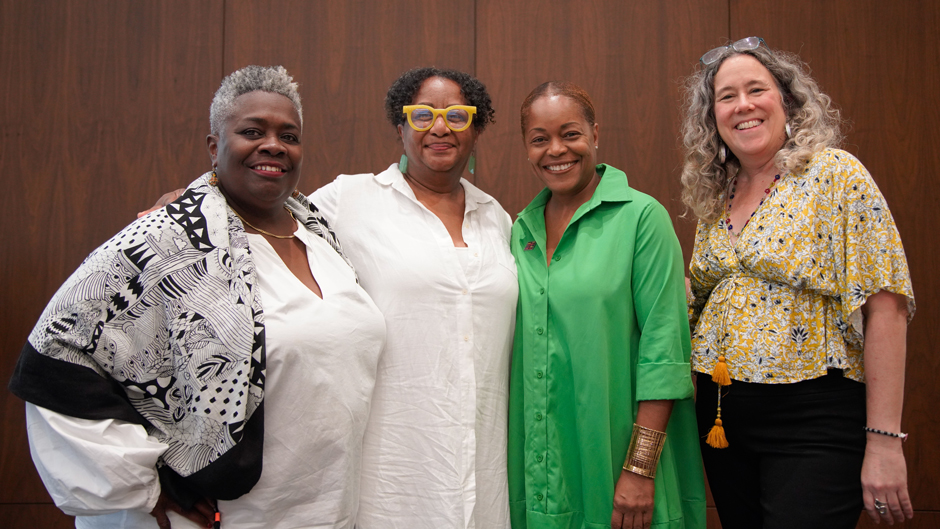When Patricia Saunders was hired at the University of Miami 21 years ago, there were only three members of the faculty who primarily studied the Caribbean. The University had hosted a prestigious, annual Caribbean writing seminar long before, but by the time Saunders arrived, its funding had run out, limiting pathways that linked the University and the Caribbean region.
Then things started changing. Over the next two decades, waves of Caribbeanists joined the University to study the region from a wide range of perspectives. There are now Caribbean researchers studying the art, literature, music, film, health, politics, and economics of the islands. In all, there are more than 80 Caribbeanists on campus who make up the Hemispheric Caribbean Studies collective.
Some wanted to create a formal center or institute on campus. But Saunders, a professor of English and Hemispheric Caribbean Studies and the director of graduate studies in English at the College of Arts & Sciences, is just happy she finally has a broader community of scholars to collaborate with.
“To me, it’s far less important what we call ourselves. What’s more important is that the work gets done, and there’s so much going on,” she said. “The more people under that umbrella, the more dynamic it can be.”
Donette Francis was part of the wave. She attended the West Indian Literature Conference that was periodically hosted at the University and joined the Department of English in 2012. “The very demographics of this place allows you to ask more urgent questions since the Caribbean and Latin America show up in our backyards in Miami,” said Francis, who also serves as the director of the Center for Global Black Studies. “This city presents the opportunity to do sobering work on the region because we’re so entangled in it.”
Saunders and Francis started keeping an eye out for new hires around the University who studied the Caribbean. In 2017, Yolanda Martínez-San Miguel, one of the world’s preeminent scholars on Caribbean literature, arrived on campus as the Marta S. Weeks Chair in Latin American Studies in the Michele Bowman Underwood Department of Modern Languages and Literatures. In 2018, Erica Moiah James, an associate professor of art and art history in the college and founding director and curator of The National Art Gallery of the Bahamas, came aboard.
They started hosting meetings to get to know each other. Oceanographers chatted with art professors, cancer specialists chatted with scholars researching voodoo, and little by little, they started forming a bond. They also established relationships with institutions throughout the Caribbean to create the Caribbean University Network, which connects faculty and graduate students in Barbados, Colombia, Cuba, the Dominican Republic, Grenada, Haiti, Jamaica, Puerto Rico, and Trinidad.
“Having that common kernel allows us to connect with different disciplines without having the constraints of a format,” Martínez-San Miguel said.
That progress is stunning to James. Caribbean Studies wasn’t even a field in art history when she started her career, but now the University offers a graduate concentration in Caribbean Studies and is home to Anthurium: A Caribbean Studies Journal, which recently celebrated its 20th anniversary.
“We have one of the best Caribbean Studies programs in the country,” said Leonidas Bachas, dean of the college. “The growth and success of this program are a tribute to our exceptional faculty.”
Now, faculty in the Caribbean Studies collective are looking for other ways to expand. They want to revive the Caribbean Writers Institute, a summer program founded by Professor Emerita Sandra Paquet that was held at the University in the 1990s and helped launch the careers of dozens of Caribbean writers. They want to enhance the regional network of universities throughout the Caribbean to share ideas. And they’re already preparing to host the 2025 meeting of the West Indian Conference, an annual event that brings together Caribbean scholars.
“This is such a crucial moment because there’s so much to do,” James said.

